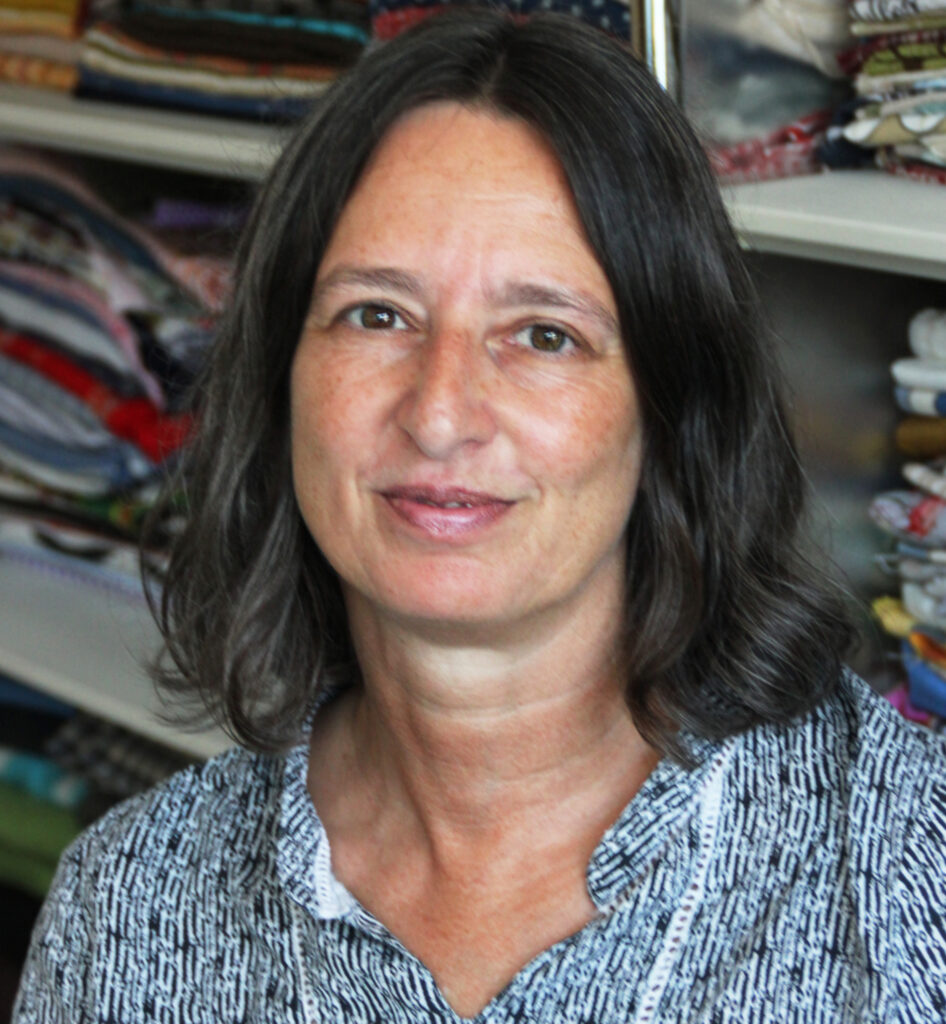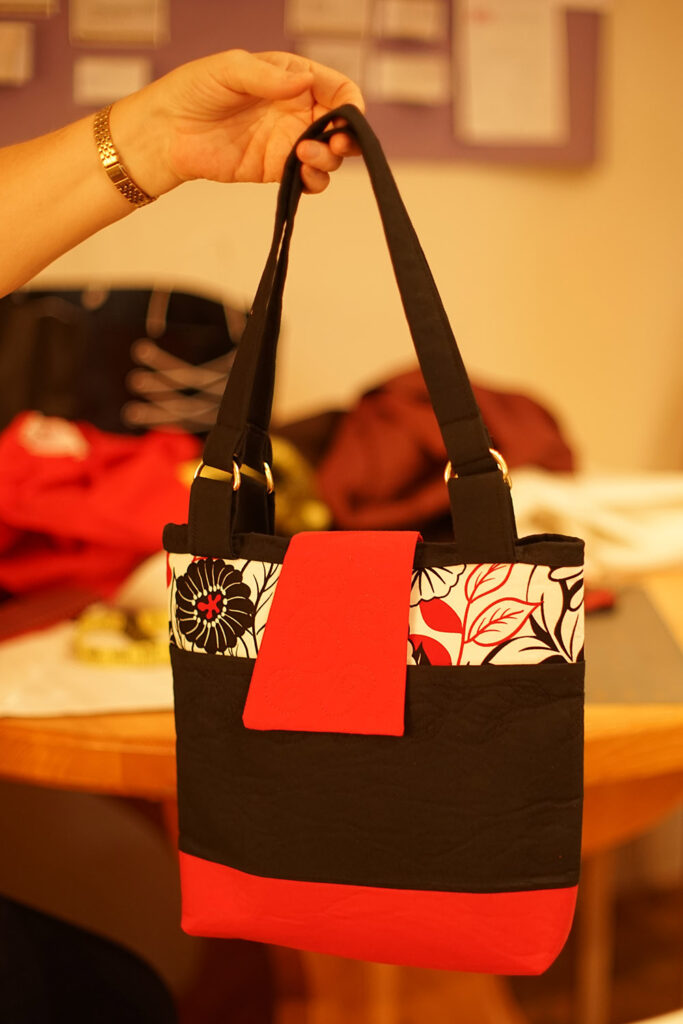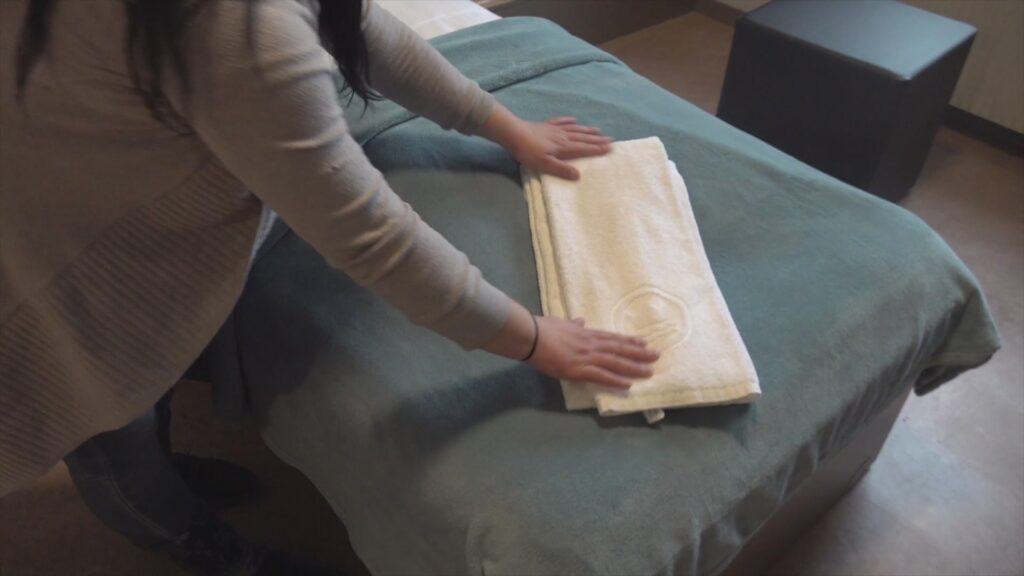
Andrea Staudenherz has been the heart of the association “Hope for the Future” (HFTF) since the beginning of 2015. HFTF campaigns for, and is working to make possible, self-determined futures for people who are affected by oppression and exploitation in a wide variety of areas including: human trafficking, begging, exploitative labour and – last but not least – forced prostitution.
ANDREA STAUDENHERZ – A SHORT BIOGRAPHY

Andrea Staudenherz seems calm and collected as she talks about the difficult topics that she is confronted with on a daily basis. As a former competitive diver, she is no longer actively involved in this olympic sporting discipline, but she does know what it feels like to be thrown in the deep end from time to time. In real life, being thrown in the metaphorical deep end is not always as easy or graceful for people that have suffered from exploitative practices, as it is for competitive divers taking the plunge.
Andrea, born and raised in Vienna, can not only walk the talk when it comes to pointing out injustices and actively taking action against them, but she also is a person who has her heart in the right place.
After completing her schooling, Andrea gained professional experience in various industries and started in the field working with “Herzwerk“, a diaconal initiative, on a voluntary basis. Based on the diverse experiences during this time, she made the decision to found “Hope for the Future” in order to offer people support when leaving their previous situation and starting a “new life”.
Shortly before starting her 50th lap of the sun, Andrea Staudenherz decided to found the association “Hope for the Future” together with other like-minded people.
HOW IT ALL BEGAN

Towards the end of January 2015, “Hope for the Future” was legally registered and with that, the current association was created. Andrea Staudenherz and three other like-minded people accepted the challenge of building the organisation. Following the “kick-off”, the prerequisites for the first workshops were created and in 2016 HFTF was able to start offering clients support with their first steps towards a new life.
Initially the offices were located in an apartment, but gradually, possibilities were improved and seminar/office spaces were able to be rented. The number of employees has also increased to six, with four employees working part-time and two being marginally employed.
In the summer of 2018, the association was granted donation tax deductibility status and HFTF was added to the list of registered charitable organizations in Austria.
A lot of empathy and delicate cooperation is required in order to be able to accompany clients. It is also almost impossible to write about success stories, especially in the case of forced prostitution. Anonymity and the protection of those affected come first. In 2019 very positive news was able to be announced. In the pre-pandemic period, six people had found jobs with the help of HFTF.
HFTF IN PANDEMIC TIMES

Many organisations, whether still expanding or well established, have been hit hard by the pandemic, which has now been with us all for over a year. “Hope for the Future” is no exception and has also been hit hard.
The already difficult financing of the association via the sale of handsewn pieces and donations has unfortunately collapsed. Andrea Staudenherz doesn’t mince her words when she understands that buying hand-sewn bags is currently not a priority, but also clearly sees that maintaining the association without income, is not an option in perpetuity.
The association’s fixed costs cannot be financed in the long term without income; the planned sales stalls at events cannot be replaced by online offers. “Home parties” at which Andrea Staudenherz first speaks about the work of HFTF and then offers the products made in the workshop for sale have not been possible. This also applies to planned benefit concerts and all other in person events. Sadly, one of the employees had to be made redundant.
HFTF – LOOKING FORWARD

The name already says it all: “HOPE FOR THE FUTURE”! As soon as the current tense and difficult situation has normalized, we hope to be able to realise the projects we have planned. First, life will return to the sewing workshop, the German courses can be fully resumed and the implementation of the pilot project for work integration can be realized. In this programme, clients will get to know structured daily routines and other necessary qualities that will be needed in a regular work environment.
The implementation of a planned “social enterprise” will also be able to take shape: be it through larger orders from companies for the sewing workshop or through the creation of a suitable hospitality business. Andrea Staudenherz has many plans and it is her ambition to have implemented self-sustaining projects in three to five years.
